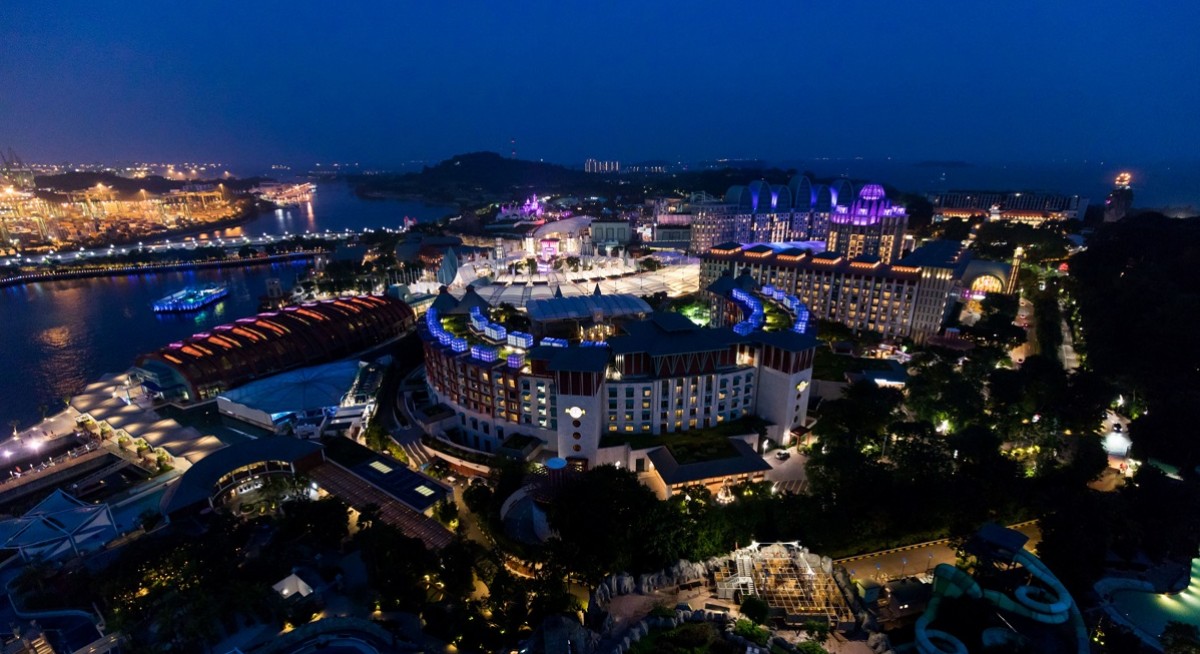Citi’s George Choi and Ryan Cheung have a target price of $1.16 from $1.20 previously, while Maybank’s Yin Shao Yang has lowered his to $1.16 from $1.21 previously. Meanwhile, DBS's Jason Sum has raised his target price to $1.15 from $1.05 previously.
Choi and Cheung from Citi note that Genting’s results for the 4QFY2023 were a miss.
“On our estimates, favourable VIP hold of about 3.6% boosted its ebitda by $49 million, which means luck-adjusted ebitda was about $179 million, which misses our estimate of $319 million, as we were overly aggressive on its opex management,” the analysts say.
They note that Genting’s non-gaming revenues also came in lower-than-expected, due to outbound Singaporean tourists in December.
See also: Analysts mostly bullish on EQDP's impact on SGX; Morningstar views tailwind as ‘temporary’
The analysts say that the lower-than-expected net profit has led to the board at Genting deciding to declare a final dividend of 2 cents per share, a figure that is unchanged since 2022, and less than consensus of 2.5 cents per share.
“Although management remains committed to staying conservative on its credit extension policy, we conservatively model its FY2024 bad debt provision to at least amount to $120 million in a base-case scenario,” they note.
That said, Choi and Cheung still expect Resorts World Sentosa (RWS) to be one of the major beneficiaries from the recently announced Singapore-China visa-free arrangement and the concert event lineup in Singapore.
See also: RHB's Yeo raises Frencken's target price to $2.03 with demand picking up from customer restocking
Likewise, Yin from Maybank has trimmed his ebitda/core net profit estimates by 6%/11%-12% to reflect the higher impairment of trade receivables and depreciation & amortisation.
“The shortfall in core net profit was due to FY2023 depreciation and amortisation coming in 21% above our expectation driven by accelerated depreciation as some attractions were discontinued to make way for the $6.8 billion ‘RWS 2.0’ expansion plan,” he notes.
However, he is still “cautiously optimistic” for Genting’s FY2024. He does not expect Genting’s impairment of trade receivables to be as large going forward, and these penalties and write-offs will not recur.
Like Citi, he believes that Genting will benefit from the Singapore-China visa-free arrangement.
Finally, Sum from DBS says that Genting’s “overall business momentum remains sound”. The analyst names Genting as one of the most profitable diversified gaming operators in a duopoly market.
Unlike Citi and Maybank, Sum says that the 6.2% q-o-q revenue moderation aligns with seasonal trends, as tourist arrivals typically peak in the third quarter of the year, while the fourth quarter is also a peak season for outbound travel among Singaporeans.
DBS remains optimistic on Genting’s ongoing phased renovations and upgrades across hotels, F&B outlets, attractions and its casino, which is expected to drive medium-term growth.
For more stories about where money flows, click here for Capital Section
He finds the risk-to-reward profile attractive despite potential concerns regarding the group’s longer-term return on capital. The analyst remains remains cautious on Genting's longer-term return on capital prospects, given the substantial outlay for RWS2.0, but he believes this risk is adequately priced in. "The stock is only priced at a level equal to its five-year pre-Covid average despite its solid medium-term earnings outlook (11% CAGR between FY2023-2025F)," he says.
“Our FY2024/FY2025 adjusted ebitda estimates remain mostly unchanged, as stronger expected top-line growth offsets an increased bad debt loss projection. We raise our target price to $1.15 as we lift our EV/ebitda peg to 9.0 times FY2024, up from 8.3 times FY2024 previously, to factor in our optimism on Genting’s medium-term growth prospects,” he says.
As at 10.33am, Genting Singapore is trading 0.9 cents lower or 8.74% down at 9.4 cents.




